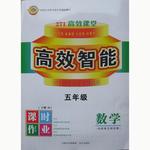题目内容
Hong Kong _______ 31st on a 2009 livability survey of world's 140 cities by Economist magazine, the best performance among nine Chinese cities that edged into the list, the China News Agency citing a news report said.
- A.ranked
- B.ranged
- C.listed
- D.lined
A
解析:
中新社援引报道称,《经济学人》公布的世界宜居城市调查中,香港在全球140个城市中排名31位,比挤进榜单的其它9个中国城市表现更好。
解析:
中新社援引报道称,《经济学人》公布的世界宜居城市调查中,香港在全球140个城市中排名31位,比挤进榜单的其它9个中国城市表现更好。

练习册系列答案
 高效智能课时作业系列答案
高效智能课时作业系列答案
相关题目